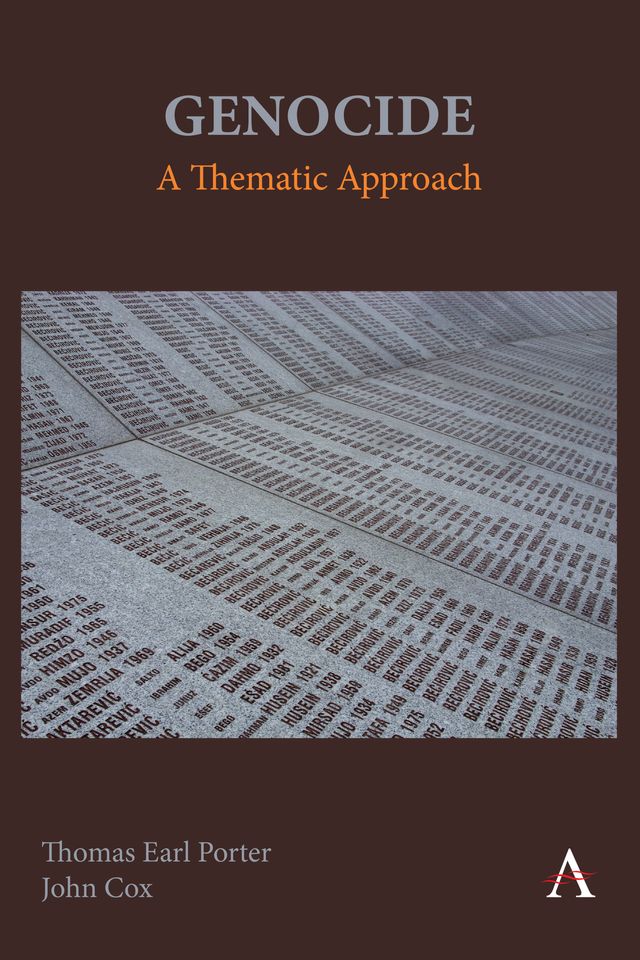Thomas Earl Porter and John Cox
Paperback
£25.00 / $35.00
Hardback
£80.00 / $110.00
eBook (WEB PDF)
£25.00 / $35.00
eBook (EPUB)
£25.00 / $35.00
ISBN: 9781839987311
Pages: 256
Pub Date: July 2022
Imprint: Anthem Press
Thomas Earl Porter and John Cox
Paperback
£25.00 / $35.00
Hardback
£80.00 / $110.00
eBook (WEB PDF)
£25.00 / $35.00
eBook (EPUB)
£25.00 / $35.00
ISBN: 9781839987311
Pages: 256
Pub Date: July 2022
Imprint: Anthem Press
The purpose of this volume is not simply to compile yet another wearying chronicle of the horrors that have been committed by our fellow human beings. Most students who register for a course on Genocide assume that it will focus, perhaps exclusively, on the Holocaust—the only case with which they are familiar. Many of them have read Elie Wiesel’s eloquent masterpiece Night in secondary school, and some may have read The Diary of Anne Frank. A few students might even know that a genocide occurred in Rwanda or Darfur. Like most people, however, they equate genocide simply with mass killing, and assume that genocide must by definition entail millions of deaths. Raphael Lemkin, who coined the word “genocide”—meaning “to kill a people”— originally defined it “a colonial crime of destroying the national patterns of the oppressed and imposing the national patterns of the oppressors.” This was a process, Lemkin said, that was intended to destroy a people’s culture thatcould sometimes but not necessarily always result in mass murder. Students need to know that after World War II the great powers undermined and co-opted the process of writing the1948 Genocide Convention at the UN. It was written very carefully to remove from the definition of genocide the treatment of Indigenous peoples in the US and Canada; racial lynching and Jim Crowism in the US; the “elimination of backwards people to protect human progress” in pre-apartheid South Africa, New Zealand and Australia; the mass murder of colonial subjects and repression of racial minorities at the hands of European security forces the world over; the mass murder of political opponents in Latin America; the mass murder of “economic” or social groups in the Soviet Union; and the blanket removal of any mention of famine and sexual violence as acts that could constitute genocide. Instead, they simply used the Holocaust as a template and succeeded in distorting what Lemkin originally meant by “genocide”—the murder of a people by destroying their social and cultural connections.
Students should also know that Lemkin’s ideas were most strongly supported at the UN by member states that were former colonies—namely Egypt, India, Pakistan, China and the Philippines—and by women within many of the delegations that were working to prevent the UN from succeeding in outlawing genocide, such as those from the US and the UK. When students learn this history can begin to think critically about what international law is and which systems of power international law serves. However, they also need a textbook that guides them to think critically and imaginatively about genocide and the 1948 UN Convention without reducing genocide and the UN Genocide Convention to a crude and cynical analysis of global power struggles. In other words, they need a book that is honest and that resists the temptation to spin ahistorical morality tales.
